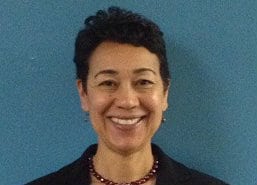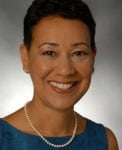While many aspects of survey development and use were discussed on a recent AYPF study tour to Illinois, a few particularly hard conversations continue to animate my thinking, such as: How are state-mandated survey data used in the absence of funding for capacity building and consistent support in using the data? What happens when a tool designed for research use begins to be used for accountability? How is the 5Essentials Survey data being used by teachers and principals?
AYPF’s study tour to Chicago, Illinois examined the use of student and teacher school climate surveys in the continuous improvement of teaching and learning. We focused on the 5Essentials Survey, an evidence-based system based on more than 20 years of research and one which most IL schools now administer as the Illinois State Board of Education has mandated the implementation of a learning conditions survey on a biennial basis. Districts do not have to use the 5Essentials Survey, but most do as the state covers the cost if this survey is used. (Three other options are available.) While the state covers the cost of administration, no money has been provided to assist schools in analyzing the data and then using the information to identify areas of strengths and challenges. For this schools have to look to their own communities to figure out pathways to progress, resulting in great diversity amongst schools as to how they utilize survey results. As one district official shared, “there is lots of variation in the extent to which schools are using that data; some do not use it at all.” Some districts are partnering with organizations such as UChicagoImpact that provides tools and technical assistance to schools to examine the data and set about improving teaching and learning. Yet this is a drop in the bucket compared to what would be necessary to truly engender reflective practice and use of the survey results to implement change.
Originally designed purely as a tool for research to provide information to Chicago Public Schools as to how they were doing, the Survey is increasingly being used for accountability statewide. The revised school report card statute requires “two or more indicators from any school climate survey developed by the state.” In the school accountability formula, results count for 5 percent. Elaine Allensworth of the Chicago Consortium for School Research emphasized that researchers and practitioners are having discussions about how the tool is used for accountability. Researchers are concerned that the tool is being used at all for accountability purposes, while principals worry that survey results are being included in how schools are doing even thought teachers are not mandated to take the survey. The only mandate is that schools have to offer the tool to teachers and students to complete. In some schools this has resulted in principals looking over teachers’ shoulders as they encourage them to complete the survey. Elaine noted, “We do have to consider what we want people paying attention to,” while also acknowledging that “We have to grow and change; that is the research-practice payoff.” She also pointed out that “these are hard conversations the surveys force you to have.”
Another aspect of the hard conversations was talking to teachers and administrators at two schools as to how they are using the 5Essentials information. Both schools we visited, UChicago Charter School Woodlawn and North Chicago Community High School, use the survey results as a framework for discussion and to help establish priority areas, such as collaborative teachers or creating a supportive environment. Yet, as one district official noted, it is important to choose what priority areas to work on but principals do have to think about all five areas. Thus it is important to have inclusive leadership, empowering teacher leaders to assist in examining the data, propose suggestions for improvement, and then monitor activities. At both schools the extent to which teachers are involved is dependent on the teachers.
Teachers acknowledged that, although some are participating in focus groups and on committees to effect change, they are still not exactly sure how the survey will be used over time. Communication challenges persist in how the survey and its intent are conveyed to the school districts. Some teachers remain concerned about who will see the results and that their individual responses will be identifiable. Others commented that “it feels like an assessment.”
It was heartening to see that in both schools the surveys are forcing hard conversations and some changes based on the feedback teachers have provided. Some specific actions steps include providing teachers time to meet in grade-level professional learning communities, improving school climate by addressing discipline challenges, or helping teachers formulate an essential question to focus on, e.g. What stops instruction from happening? Yet teachers and school administrators acknowledged that there is a desire for a finer focus, as the 5Essentials Survey only provides “surface information.” At both schools there were examples of teachers subsequently designing their own impromptu surveys that were administered to students to get more immediate feedback as to what is working or not working for them in that particular class. One teacher commented that “the survey makes me more conscious about what I am articulating to the students.”
There are limits to what the 5Essentials Survey can accomplish, but it is successful in shining a spotlight on what we value as we educate young people, what kind of environment they need to be successful, how important it is to provide students, teachers and parents a voice in the education process, and how much more still needs to be done to not only gather data but utilize it effectively in support of improved teaching and learning environments.




